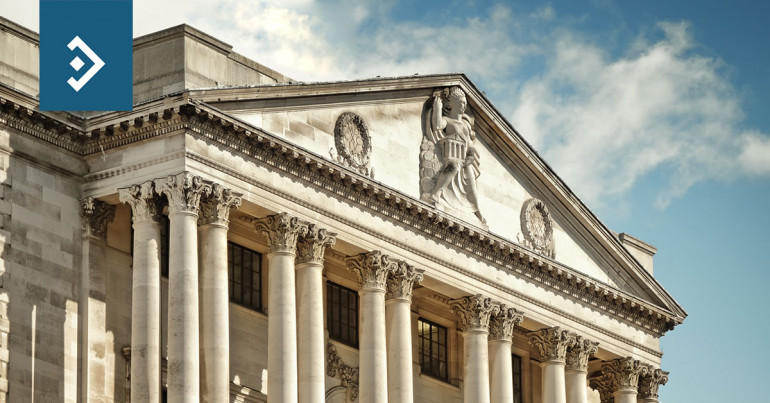
Kwarteng promises more tax cuts
Morning mid-market rates – The majors
27th September: Highlights
- Bank of England threatens more rate hikes
- Deeply entrenched inflation is the Fed’s biggest fear
- What does a far-right Government mean for Italy?
GBP – Weak currency will add to inflation
Given the herd mentality of markets, it takes no time at all for a drama to turn into a crisis. The Bank of England and the Treasury were both forced into action as the cost of borrowing soared as the pound was dumped by traders.
High and rising inflation, an economic recession and public debt which is going through the roof is not a good look for new Prime Minister Liz Truss. Both she, and her Chancellor, look hopelessly out of their depth.
Truss has the appearance of a child at Christmas who wants to attempt the experiments in her new chemistry set all at once.
The hikes in interest rates that have been taking place all year have now reached the point where they have become restrictive for the economy, just as outside forces are hitting growth. Several lenders are urgently reviewing mortgage offers to borrowers as rates have begun to soar.
The two-year rate broke above four percent yesterday. That is the rate that until recently was being charged to less reliable borrowers like Greece and Italy.
Bank of England Governor, Andrew Bailey, suddenly doesn’t look like a man who can be relied upon in a crisis. There were dire warnings coming from the Central Bank yesterday about further substantial rises in interest rates to both tackle inflation and bolster the pound.
The opposition Labour Party, at its annual conference, heard from the Shadow Chancellor, but she was unable to offer anything other than criticism of the recent announcements, although she would leave each of the tax cuts in place, other than abolishing the 45p top rate of income tax.
Having hit an all-time low of 1.0333 versus the dollar in early Asian trade yesterday, the pound had begun to recover, but any relief was short-lived, as Kwarteng promised more of the same going forward.
The rush to growth that will be the Conservative’s mantra in the future appears to have been built on very weak foundations.
Sterling recovered to trade around 1.0600/50 for most of the afternoon and attracted buyers late in the day to close at 1.0766.
Recommend our services and earn up to £75 per successful referral
USD – Reckless spending to support economy to blame
President Biden and Treasury Secretary Janet Yellen ignored calls for support to be targeted at those who need it most, unable to grasp the fact that they were no longer campaigning for office but were instead running the country.
The fractures that appeared in supply chains took far longer to correct themselves and were exacerbated by the amount of cash flowing through the system chasing too few outlets.
This is the latest view being touted to defend the tightening of monetary policy that has seen interest rates rise by 2.25% over the past three meetings of the FOMC.
Following Jerome Powell’s claim that it is taking longer than expected for the new normal to be integrated into the economy, part of the problem is the time it is taking for the time it is taking for the level of cash to subside.
Having acknowledged that the issues facing the economy are both unexpected and have never been encountered, it is odd that the Central Bank is using traditional means to combat them.
Perhaps tightening monetary policy to levels not seen for a considerable time will work in the long run, but the Democrats’ handling of the economy has almost certainly lost them the midterms, which are fast approaching.
Former White House economic adviser Steve Moore is certainly a believer in the theory that the White House spent recklessly at the height of the Pandemic. He believes that it would have been better to have battened down the hatches, until the worst of it was over, before introducing measures to kick-start the economy.
Of course, hindsight will always bring forward alternatives to contradict decisions that were made at the time, but they will always have the benefit of all the facts.
Jerome Powell is now walking a tightrope, trying to lower inflation back close to its 2% target while desperately trying not to tip the economy into a recession. In two years’ time, doubtless, there will be a better way put forward by his critics.
The dollar index rose to a high of 114.67. It is exhibiting signs of being heavily overbought and a shallow correction is likely before any further gains.
EUR – Economy will weaken into winter as the energy crisis bites
Philip Lane believes that the energy crisis will drive the economy into a significant recession unless the price of gas falls substantially over the next few months, something that, as things stand, is unlikely to happen.
Christine Lagarde believes that the situation is darkening, and activity will slow substantially in the coming months, but she still believes that the Eurozone economy will exhibit growth during 2023.
That is considered overly optimistic by banks and the major think tanks who see the economy falling dramatically.
In a speech yesterday, she railed against politicians who have failed to steer the economy through the problems created by the Pandemic. She sees the two successive quarters of economic contraction required to declare a technical recession as taking place in the fourth quarter of this year and the first of 2023.
It is hard to imagine where she sees the catalyst for a turnaround in the second quarter of next year without a significant development in the war in Ukraine and a 180-degree turnaround in Russian energy policy. As things stand, neither of those scenarios appear likely.
Lagarde at least acknowledges that 2023 will be a difficult year, but she also believes that overall, the economy will grow at an average of 1%. That will be a tough ask, given that Germany will likely contract by 2% alone.
Georgia Meloni looks certain to be the next Prime Minister of Italy. Her Brothers of Italy Party looks to have received sufficient votes in the election that was held on Sunday to secure victory.
In a populist speech delivered yesterday, she promised to deliver an Italy for all Italians. Her far-right views appear to have been dialled back a little. as she will be tough on immigration but vowed to work in harmony with Brussels.
The euro remains reactive to the dollar index. Yesterday it closed on its lows of 0.9585
Alan Hill
Alan has been involved in the FX market for more than 25 years and brings a wealth of experience to his content. His knowledge has been gained while trading through some of the most volatile periods of recent history. His commentary relies on an understanding of past events and how they will affect future market performance.



